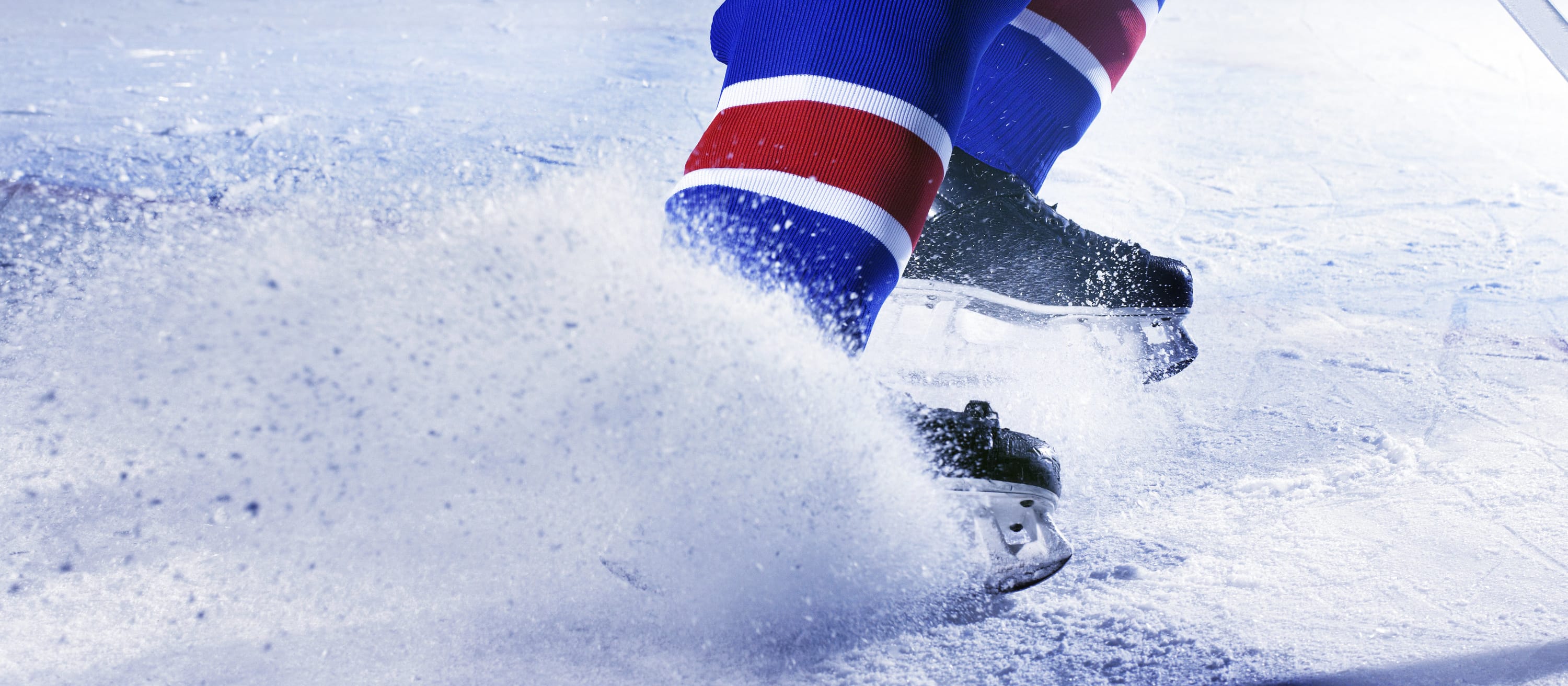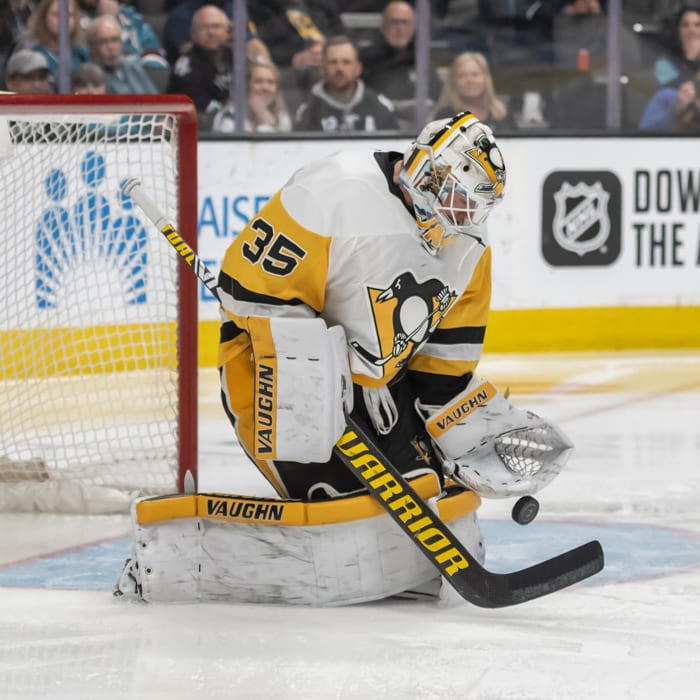This Isn't Lake Placid
Yes, the United States beat Russia 34 years ago in Lake Placid in the semifinals. Yes, Ryan Suter's father, Bob, was on the team. Yes, Al Michaels is still part of the Olympic coverage. Yes, the United States is playing Russia Saturday, in Russia.
No, it will not be a new miracle on ice if the Americans win.
The only similarity between Saturday's pivotal Group A tilt and 1980 is that the United States is playing Russia.
The group who defeated the Soviets in 1980, and later Finland for the gold, was a collection of the best college hockey talent in the country with several future NHLers on its roster, such as Ken Morrow. Morrow left Lake Placid with a gold medal and went on to win four Stanley Cups with the Islanders.
That group of collegiate stars defeated the best collection of professional hockey talent assembled at a time where the geopolitical climate of the world was rather different. The game served as a symbol of The Cold War and ushered in a new generation of American hockey talent. This US roster, loaded with NHL talent, isn't the group from 1980 and neither is the Soviet squad.
A United States win on Saturday will not be a repeat of 1980. It will be the American NHL players defeating a Russian squad of current NHL stars and a handful of KHL players.
It's a preliminary matchup, albeit one that will bear much in determining which team will win Group A and advance to Wednesday's quarterfinals, avoiding the ever-dangerous qualification round on Tuesday.
Both the United States and Russia won their openers Thursday; the Americans routing Slovakia 7-1 thanks to six second period goals while the Russians held off a feisty effort from Slovenia, winning 5-2.
Russia's Hope
The Russians have one of the best assemblages of elite forward talent after the Canadians, boasting a top six which includes Alexander Ovechkin, Evgeni Malkin, Pavel Datsyuk and former Devil Ilya Kovalchuk. Malkin, Kovalchuk and Ovechkin all scored Thursday, as did budding star Valeri Nichuskin of Dallas; this is without mentioning their other two top forwards: Alexander Semin and former Nashville winger Alexander Radulov.
The United States' defense will have a tall order in slowing down Russia's top forwards. Don't' be surprised to see Brooks Orpik and Paul Martin out against the Ovechkin group given the familiarity they have with the Caps' star as well as knowing Pittsburgh teammate Evgeni Malkin rather well. The American defenders do have the quickness to stay with Russia's top forwards and force them to the outside, especially the likes of Ryan Suter, Kevin Shattenkirk and Ryan McDonagh. No United States defender played over 20 minutes in Thursday's win over Slovakia, likely having to do with the large lead the US accrued in the second period.
Expect those ice time totals to change Saturday with the top pairings for the United States logging heavy minutes in front of Jonathan Quick, who will start over Ryan Miller. Quick saw only 23 shots in Thursday's win over the Slovaks, handling them rather well. Odds are Suter, who leads all NHL players in average ice time at close to 30 minutes, will be shadowing Ovechkin, Malkin or Kovalchuk.
Russia's top forward lines are elite, but their bottom six forwards are not nearly as talented as the ones the United States boasts in the lower half of its depth chart.
You Can't Handle The Speed
While the flashy matchup is the US defense against Russia's top forwards, Russia's blue line will be unable to cope with the speed and forechecking of the Americans. The Russians looked slow at times against Slovenia and vulnerable on the counterattack. They'll be relying on heavy minutes from the Montreal pair of Alexei Emelin and Andrei Markov while Edmonton's Anton Belov will be featured much. That trio is hardly a world-beating group.
Seeing how the United States was able to generate goals on the rush and how their defensemen activated into the play Thursday, notably John Carlson and Kevin Shattenkirk, Russia will be hard-pressed to slow this group down. Phil Kessel used the extra space on the outside well to his advantage with linemates James van Riemsdyk and Joe Pavelski; the Americans' "fourth" line of Max Pacioretty-Paul Stastny-T.J. Oshie is a group that can be a handful and was active Thursday. Russia's defense will be under siege by the United States' forecheck, a forecheck that created several goals Thursday, including Ryan Kesler's.
Two lines from the US lineup are going to be factors at both ends of the ice: Zach Parise-David Backes-Ryan Callahan as well as the trio of Patrick Kane-Ryan Kesler-Dustin Brown. Both groups are capable of playing more physical hockey than the Russians will and have the ability to stop the Russians offensively and launch the counterattack.
The Americans are too quick for the Russians and will have Semyon Varlamov or Sergei Bobrovsky rather busy. That speed can lead to penalties and put a mobile power play on the ice.
Defensemen contributing offensively has played a large role in the tournament's first three days, and not just Swede Erik Karlsson. Drew Doughty made a well-timed pinch for Canada's third and final goal Thursday against Norway and Marek Zidlicky has been active for the Czechs. Shea Weber has already scored twice for Canada. Karlsson's ability to rush the puck up the ice created the only goal for Sweden in its shutout win over Switzerland on Friday, putting a stoppable shot on Reto Berra, who coughed up a juicy rebound to Daniel Alfredsson.
Only Andrei Markov and Slava Voynov will be able to deliver that extra element to Russia's attack while the Americans will be more than happy to defend, defend and launch a counterattack sparked by their defenders' ability to make great outlet passes and join the rush.
Recap
-US will have to limit the chances of the elite Russian forwards
-Americans need to exploit Russia's shallow blue line
-The American defense will be factor into the team's scoring
-The speed and counterattack of the American attack will be too much.
-Semyon Varlamov or Sergei Bobrovsky will be busy. Jonathan Quick will need to match Varlamov's play.
Prediction: 4-2 United States.
Gametime: 7:30 AM Eastern on NBC Sports Network.












